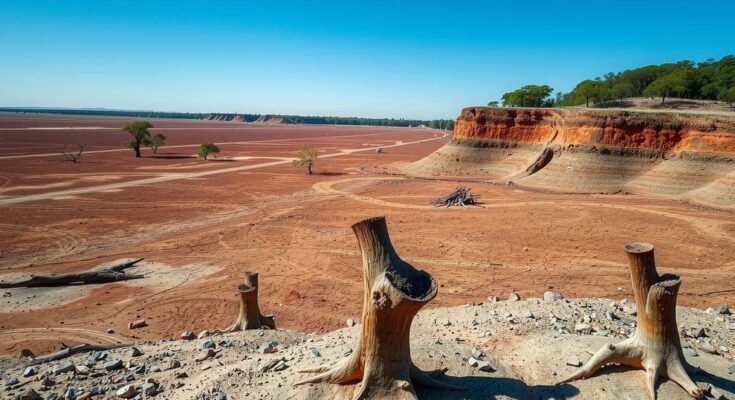The article discusses Mark Carney’s environmental stance amid scrutiny of his past at Brookfield Asset Management, where deforestation-linked farms were sold. Despite his advocacy for climate action and net zero, critics argue his company’s actions contradict his rhetoric, raising concerns about transparency and corporate responsibility.
Mark Carney, the newly appointed Liberal leader and prospective Prime Minister, faces scrutiny regarding his environmental record, particularly concerning his tenure at Brookfield Asset Management. A BBC article highlighted that under his leadership, Brookfield sold farms in Brazil that were linked to deforestation, raising questions about his transparency in relation to climate change advocacy. Carney’s financial ties to Brookfield are believed to be worth millions, which further complicates his stance on environmental issues.
Brookfield, during the period from 2012 to 2021, was reported to have deforested approximately 9,000 hectares of Brazil’s Cerrado savanna, turning the land into soybean farms before selling it in 2021. This activity resulted in the release of around 600,000 tonnes of CO2 emissions, an amount equivalent to 1.2 million flights from London to New York. The Cerrado ecosystem is critical for limiting global warming, as asserted by the World Wide Fund for Nature, emphasizing the significance of preserving such environments.
Having joined Brookfield in 2020 and subsequently becoming its chair in 2022, Carney has positioned himself as a proponent of decarbonization and net zero initiatives. He founded the Glasgow Financial Alliance for Net Zero (GFANZ) in 2021, advocating for companies to address carbon-intensive assets through managed phase-outs as opposed to divestment, a sentiment he reinforced at COP27 and in UK Parliament sessions.
In defense of their actions, Brookfield stated that the sale of the deforested farms was a pre-determined decision necessary for returning capital to investors, a process rooted in fiscal obligations. While the company acknowledged challenges in creating profitable reforestation strategies, it asserted its commitment to collaborating with GFANZ to formulate possible solutions. Critics like Veronica Oakeshott from Global Witness challenged this justification, suggesting a disparity between Carney’s environmental rhetoric and the actions taken by Brookfield.
Mark Carney’s environmental credibility is called into question due to his association with Brookfield Asset Management’s sale of deforestation-linked farms in Brazil. His advocacy for managing carbon-intensive assets contrasts starkly with the company’s actions. This situation highlights the ongoing debate surrounding corporate responsibility in climate issues and the importance of holding leaders accountable for their environmental commitments.
Original Source: www.westernstandard.news




